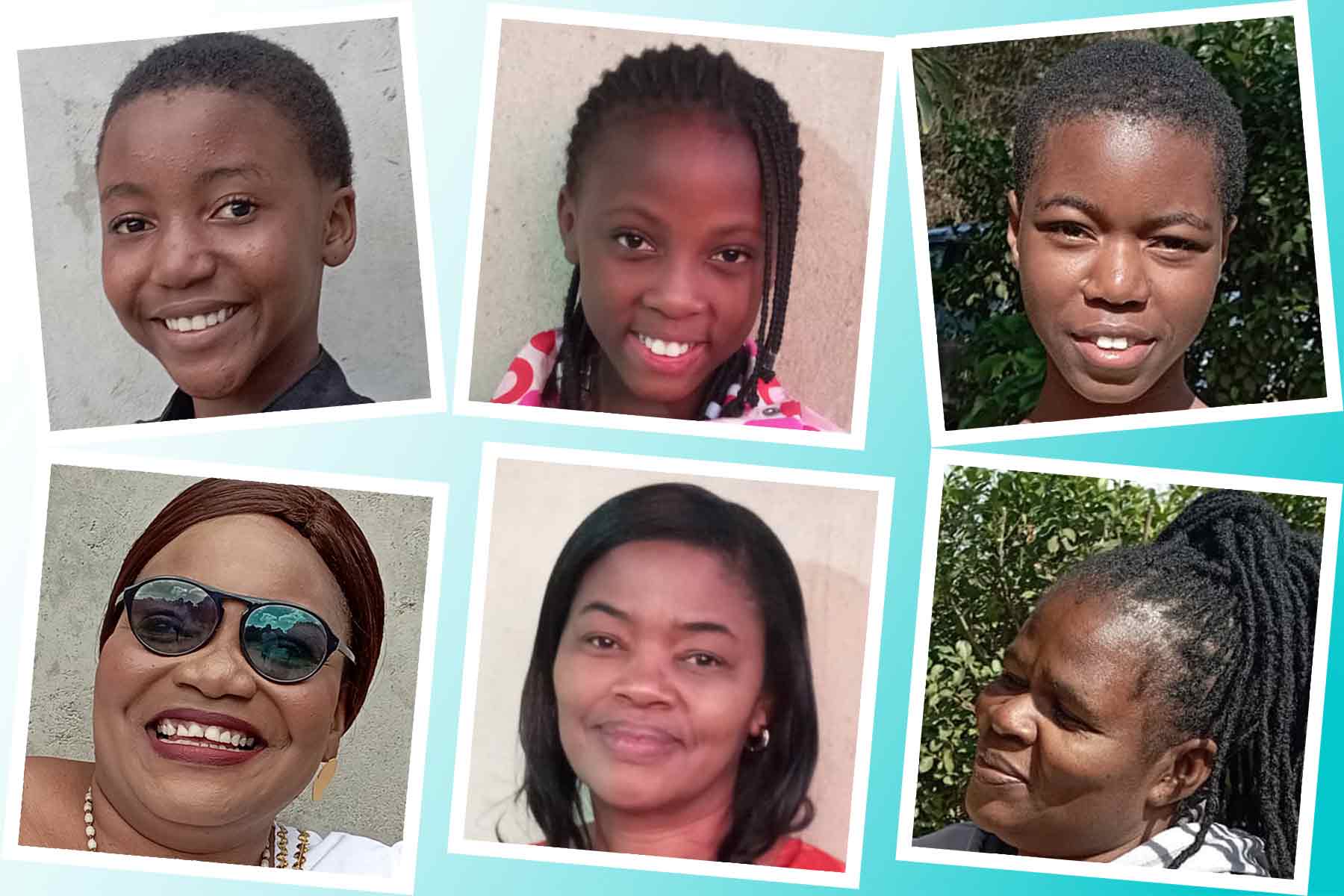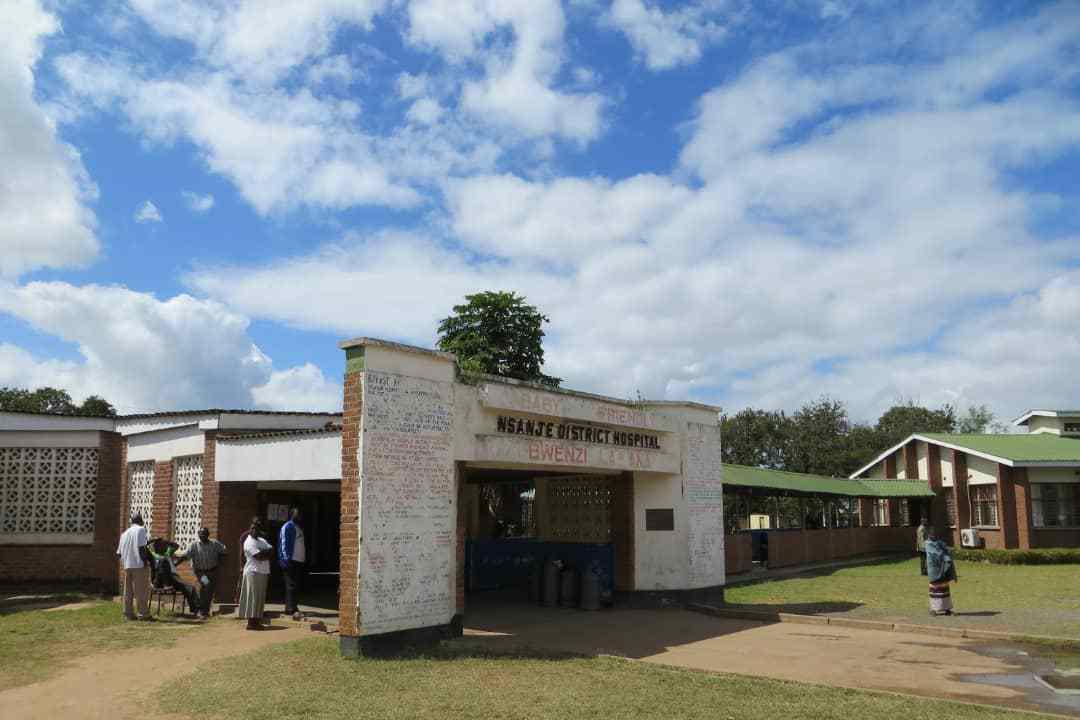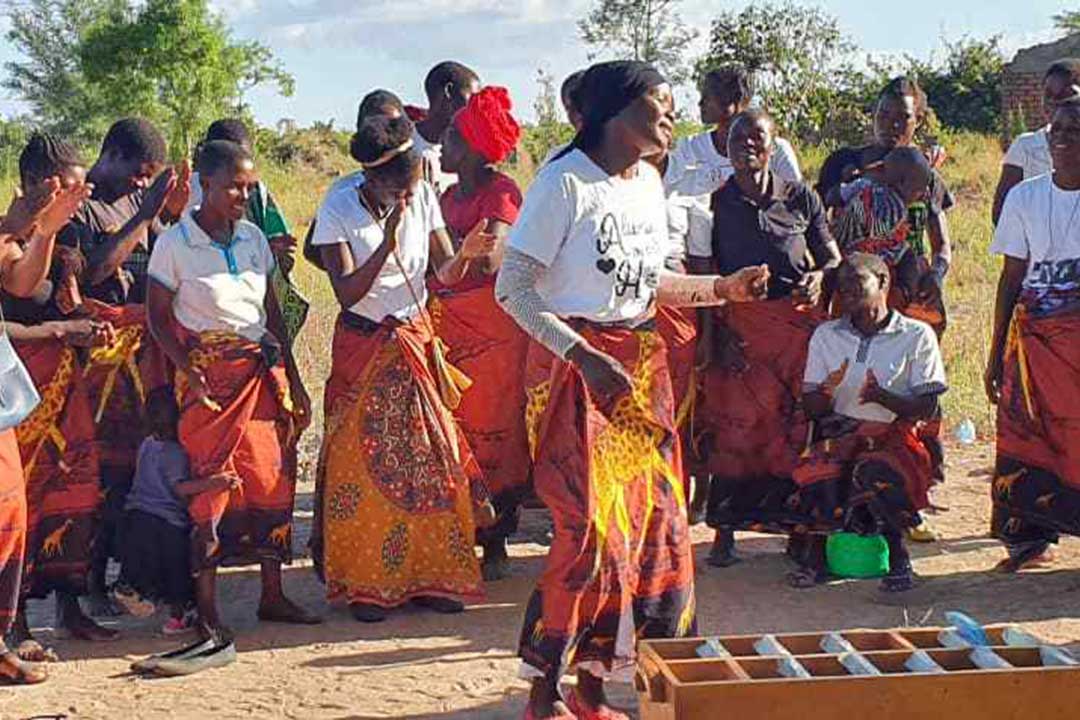Sunny with a chance of cyclones: Malawi’s cold chain goes solar-powered
Cyclone Freddy wiped out Chabvala’s vaccine cold chain. Solar-powered vaccine fridges are helping to get the town’s vaccine programme back on track.
- 25 July 2023
- 6 min read
- by Josephine Chinele
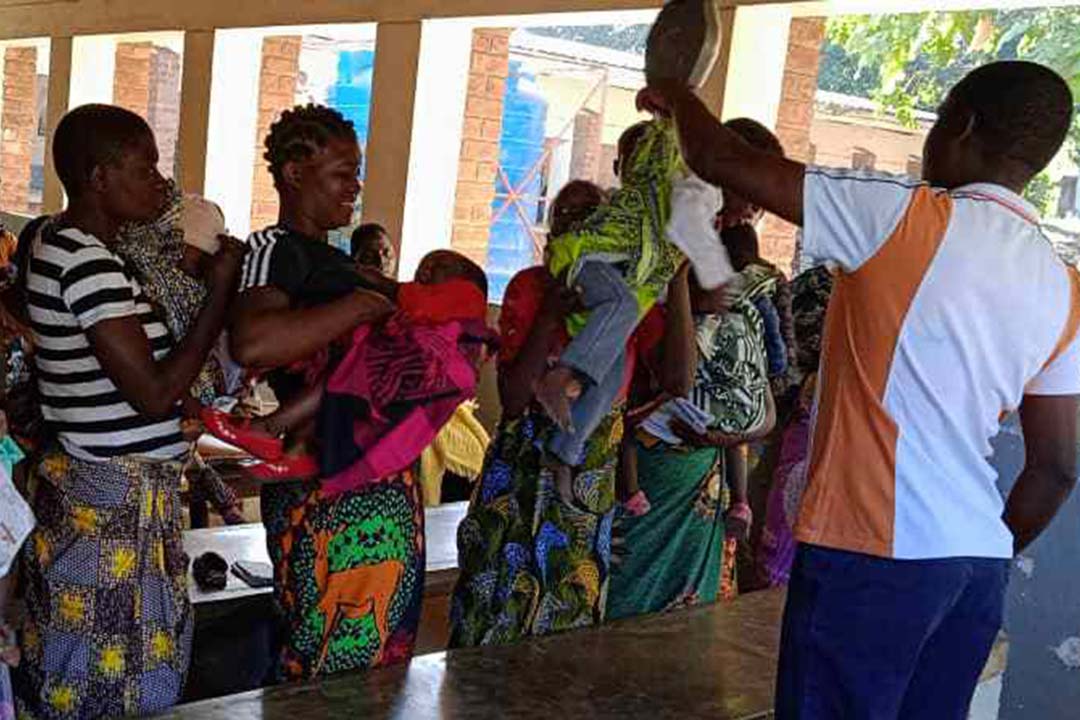
Even before Cyclone Freddy hit in March, Chabvala Health Centre, located some 70km from Blantyre city in Malawi, was a particularly difficult facility to keep running.
The clinic lies on a degraded network of rocky dirt roads, accessible only on foot or by 4x4, high-clearance vehicles, meaning that both ambulance runs for referral patients and goods deliveries rely on the availability of Land Cruiser-type machines.
"At times, we could have a high demand with low vaccine supplies, resulting in turning back many children. This discouraged the parents from returning the next day, since they come from far."
– Nelson Ching’amba, Health Surveillance Assistant, Chabvala Health Centre
Then the storm made landfall, and health facilities across Malawi took a hit. By the end of the month more than 1,200 people would be dead or missing as floods and cholera swept the country. The national power grid was brought to its knees as its hydro-electricity plant took crippling damage. At Chabvala, the electricity dropped, then surged, then dropped again. The facility's only fridge went dark – for good.
Storm damage
To try and keep routine immunisation on track, clinic staff scrambled for a workaround, ultimately storing their vaccines in Chikowa Health Centre's fridges, 22km away.
"It was our duty as Health Surveillance Assistants (HSAs) to collect the vaccines. We used bicycles or walked on foot, depending on the weather conditions," recalls an HSA at the facility, Nelson Ching'amba.
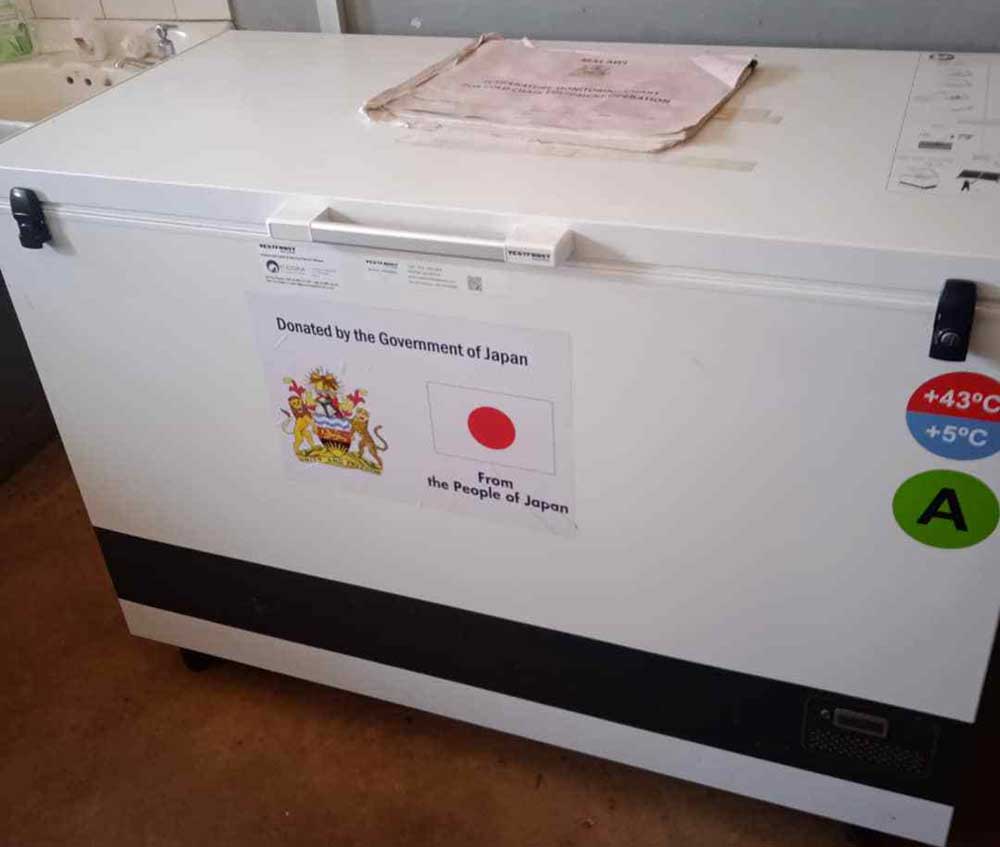
Credit: Chabvala health centre
"We collected few vaccines to avoid wasting them in the event that there is poor turnout. We had no fridges to maintain recommended temperatures. But at times, we could have a high demand with low vaccine supplies, resulting in turning back many children. This discouraged the parents from returning the next day, since they come from far," Ching'amba recollects.
Clinic staff report that vaccination rates dipped to just 30% of the facility's target of 50 children immunised per month, and stayed that low for three long fridge-less months. Supply was not the only issue – the storm had brought down some bridges and worsened the bad roads, meaning outreach clinics became impossible.
"I had delays or missing on immunisations altogether due to harsh weather conditions or due to immunisation stock-outs at this facility," recalled Maria Limani, a mother of five from Padzuwa Village in Chikwawa district. "At one time I came here in two consecutive weeks, but no vaccines were available," she explains.
Solar comeback
That's all changed. In June, Chabvala's ruined fridge was replaced with a solarised fridge. Powered by the sun, via roof-mounted solar panels, the new vaccine cooler is independent of the national grid.
In July, Limani's walk to Chabvala is as long as ever: "To be here on time, I leave home at 5am. Today, I arrived at around 8am," she says. But the risk of frustration is much lower. She cradled her baby, wrapped in a cream flowery blanket, and explained that the 14-week-old had just received her fourth lot of life-saving immunisations.
Have you read?
Another mother waiting at Chabvala Health Centre, Melia Kaliyoti of Ntengeleni Village, which falls under Traditional Authority Kunthembwe in Blantyre, says: "Cyclone Freddy disrupted immunisation. My child missed some vaccines during this time. He is just catching up now that the facility has a new fridge."
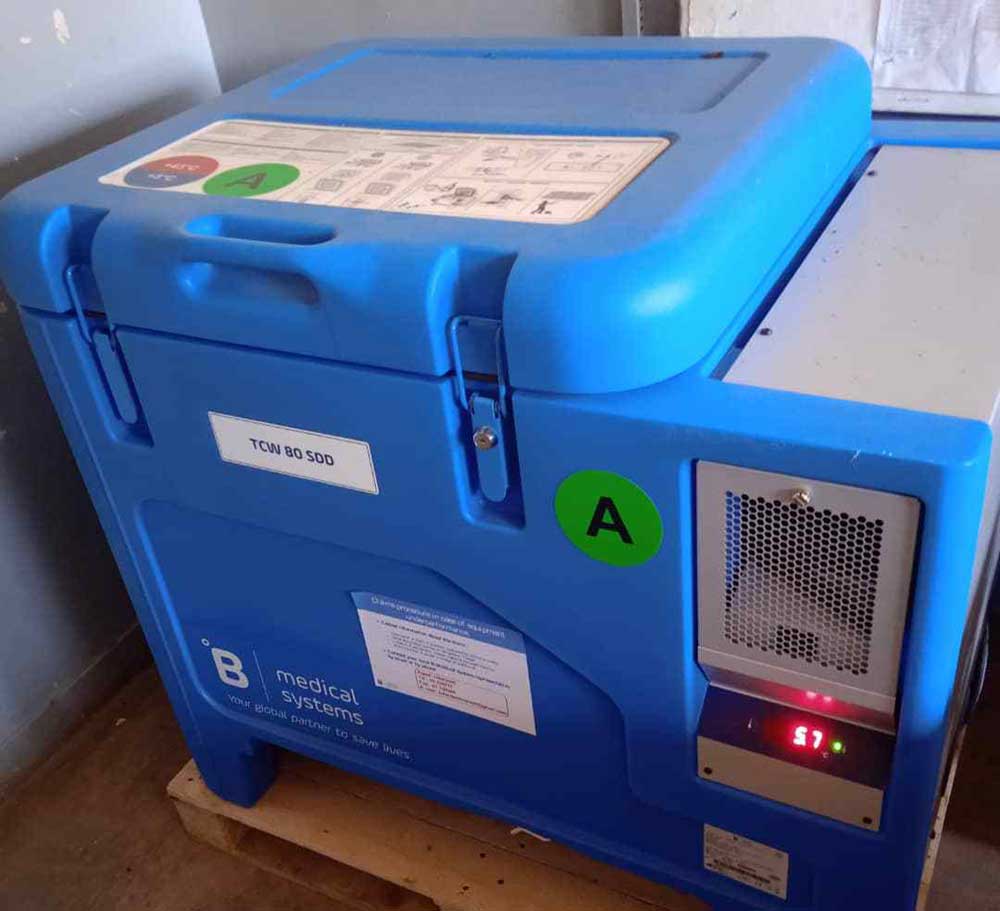
Credit: Chabvala health centre
Sunny days
Chabvala had been expecting a solarised fridge even before its old fridge blitzed out amid the cyclone's assault on the electrical grid. In fact, since October 2021, UNICEF, with funding from Gavi, the Vaccine Alliance, has been installing solar powered fridges across Malawi's network of health facilities. So far, more than 450 fridges have been installed across the country.
The solarised district vaccine stores, fitted in 29 districts, are worth $650,000, while the smaller, facility-based solar fridges at 25 facilities are worth $450,000. UNICEF says country-wide installation is being done gradually, with 150 facilities in the installation process.
“Cyclone Freddy disrupted immunisation. My child missed some vaccines during this time. He is just catching up now that the facility has a new fridge.”
– Melia Kaliyoti of Ntengeleni Village
UNICEF Malawi Health Specialist and Head of Child Health Dr Ghanashyam Sethy says the concern that power outages undermine a health centre's ability to keep vaccines at the consistently cool temperatures they need to remain potent, prompted his organisation to instal solar powered fridges in hard-to-reach facilities like Chabvala.
He believes that Malawi has missed vaccination opportunities prior to solarisation, as district hospitals have had other emergency priorities other than minding cold chains affected by frequent electricity failures.
UNICEF is committed to looking after the equipment they are installing for two years, while its expected lifespan is a decade, he explained. They are also currently doing online monitoring of the solar equipment, made possible by remote monitoring hardware that has been installed at every site. These devices have SIM cards that transmit data every few seconds to the online cloud and dashboard managed by the hardware manufacturer.
"In case an error is identified, the contractor is required to respond to the issue immediately. If it requires site visits, then the contractor has to visit within five days. For long term, UNICEF wants to build capacity of the ministry technicians to monitor the data and completely manage the online dashboard."
Cloudy forecast
The ability to respond rapidly to storm damage promises only to become more useful with time.
Climate change and international development expert Dr Barbara Ntapala says Malawi is prone to weather hazards like floods, droughts, and storms – and that that risk only appears to be growing amid the global climate crisis.
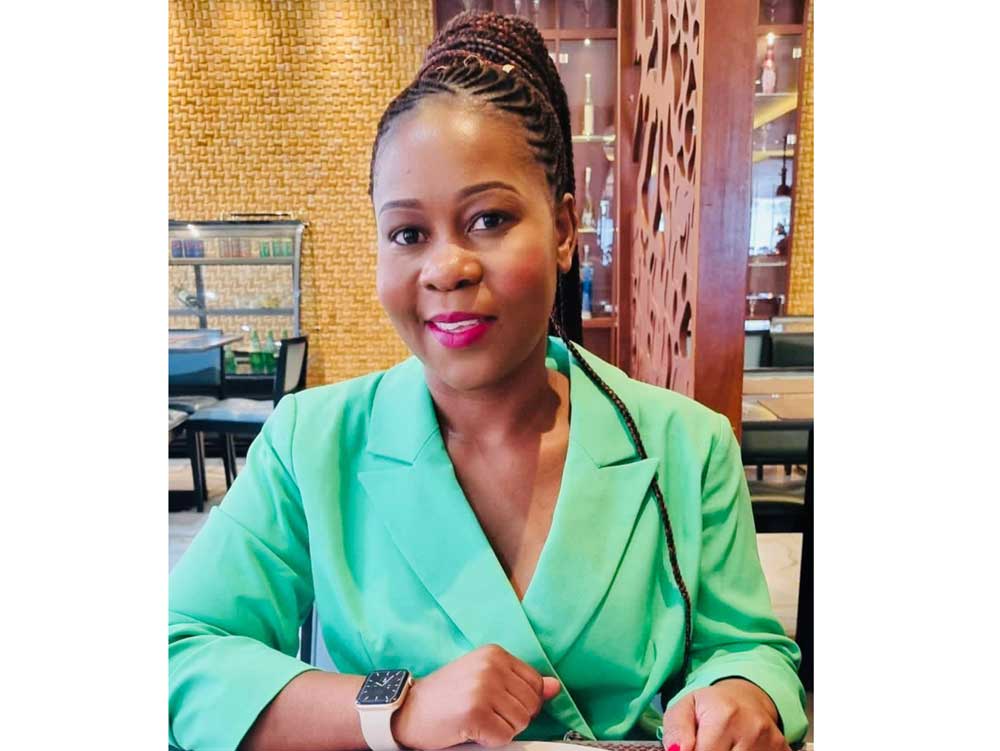
Credit: Dr Ntapala
"[The] disaster trend has increased in the past decade," she told VaccinesWork. "Severity and intensity is likely to increase. Past storms' harshness is an indication of more disastrous disasters to come. Malawi's lack of capacity to predict scales of anticipated next storms to issue early warning is a big challenge," she explained. "Although the meteorological department gave an advance Cyclone Freddy warning, it failed to detect its scale."
In the aftermath of Cyclone Freddy, she suggests, there are lessons to be learned.
Keeping it cool
One of those lessons may prove to be the comparative resiliency of a solar-powered cold-chain amid an unpredictable future.
“[The] disaster trend has increased in the past decade. Severity and intensity is likely to increase. Past storms’ harshness is an indication of more disastrous disasters to come."
– Dr Barbara Ntapala, climate change and international development
While the storm damaged 65 health facilities in Malawi closing down 15, cutting off access to ten, and reducing the capacity of the remainder by half, Ministry of Health spokesperson Adrian Chikumbe noted that a ministry assessment found no damage at all to solar-powered equipment.
Meantime, Blantyre District Health Office's Expanded Programme on Immunisation (EPI) coordinator Myless Mhango noted that while some area health facilities suffered electrical interruptions for more than three weeks following Freddy's landfall, solarisation has promised some relief from the risk of a repeat. "We are assured of vaccine safety and uninterrupted routine immunisation," she said. "This has increased the district's immunisation coverage."
